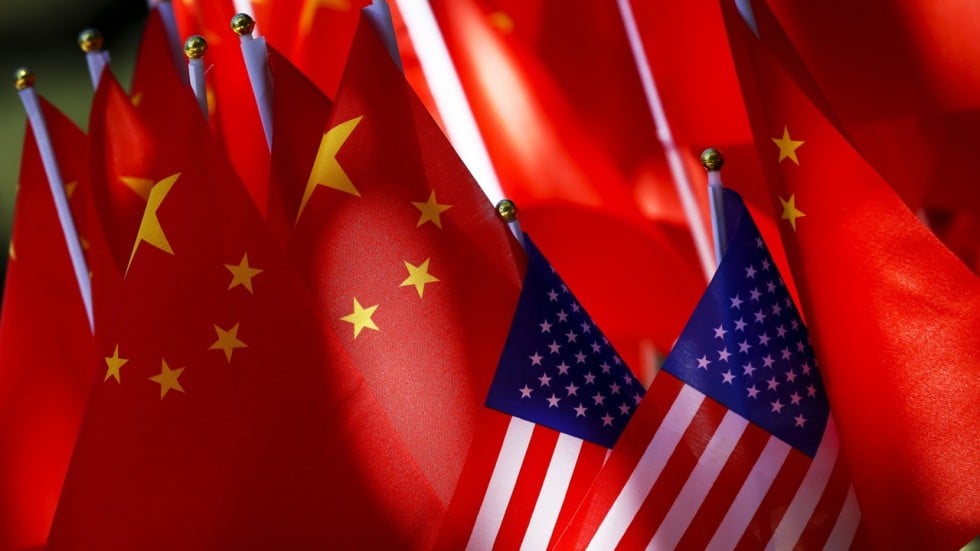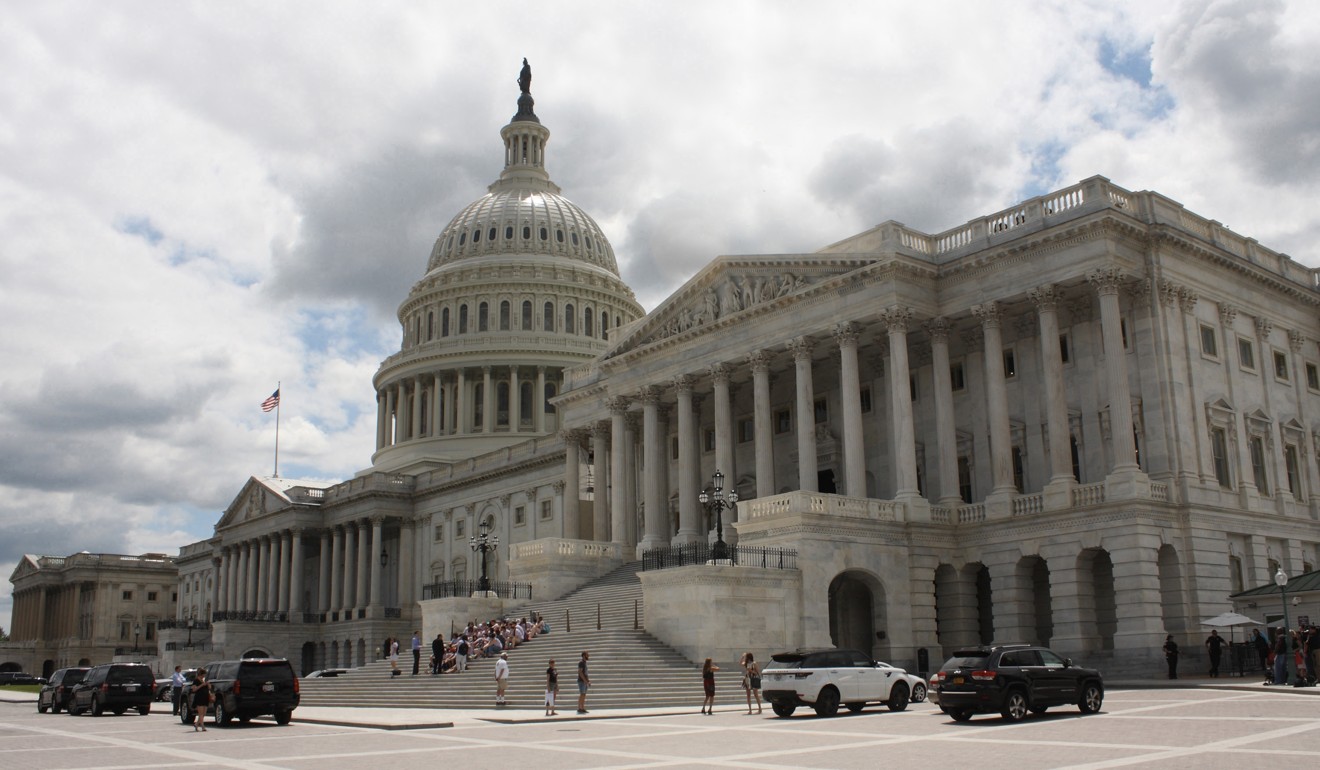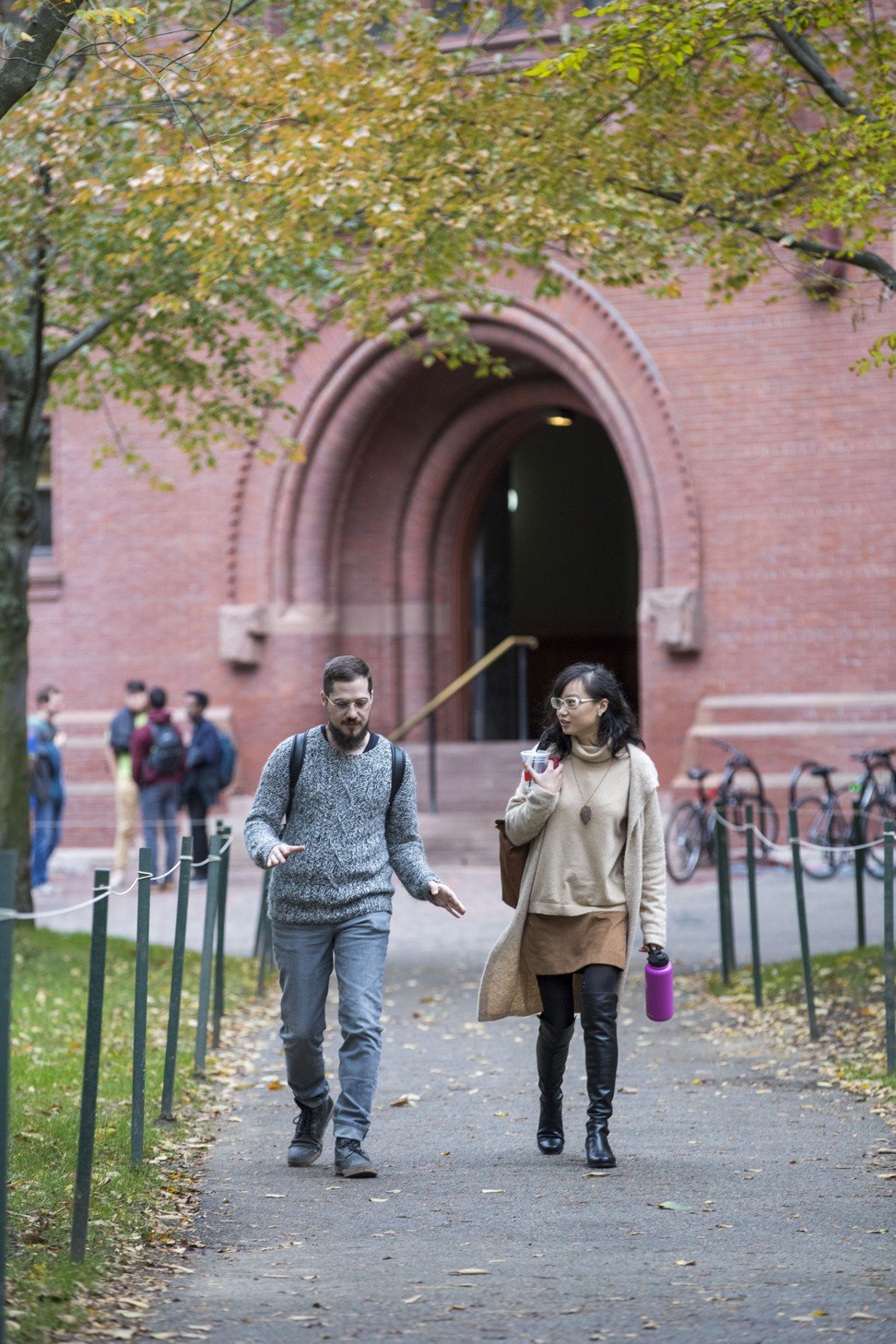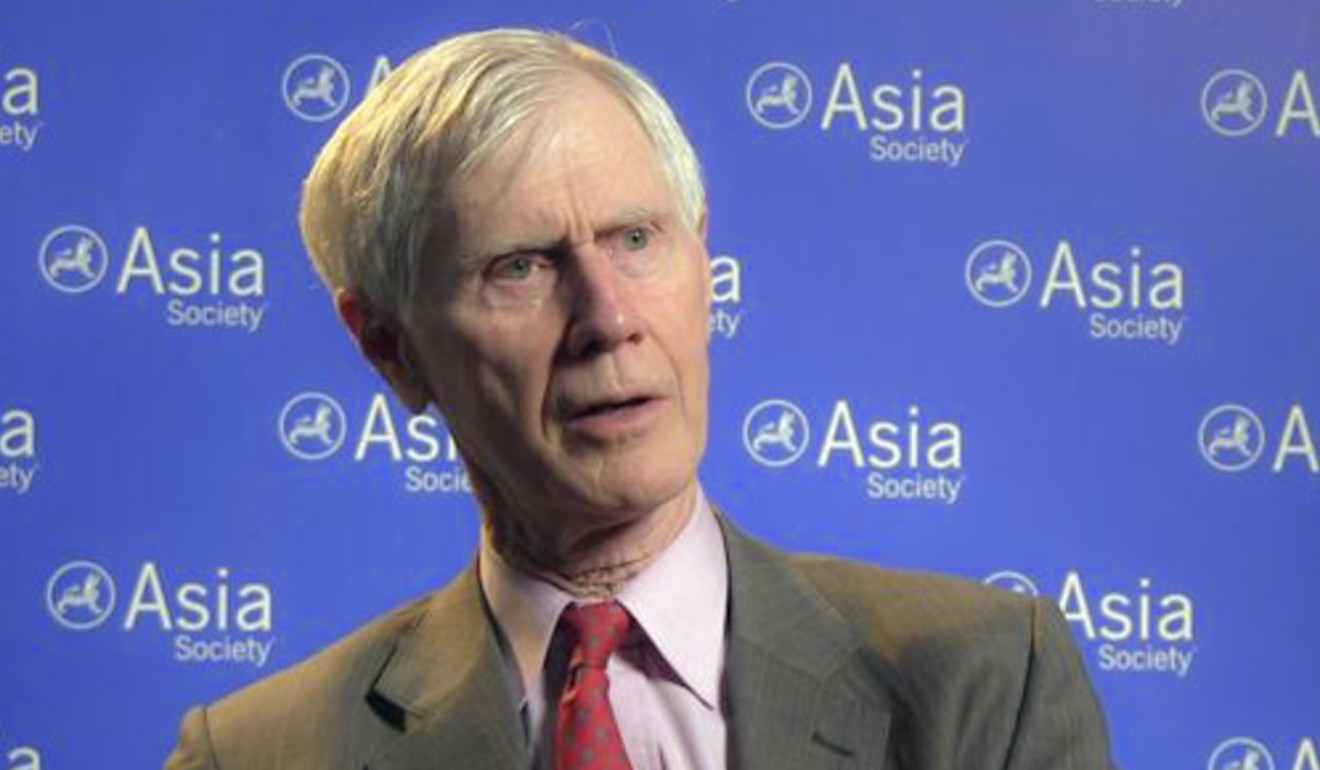US urged to consider bans on Chinese journalists and subsidise US businesses to counter Beijing’s influence campaign
Report focuses on what it calls a growing Chinese influence operation aimed at American democracy
Urges punitive actions such as denying US visas to Chinese journalists

Owen ChurchillJun MaiStates
“Tit-for-tat retaliation” such as denying visas for Chinese journalists may be the only option for the United States to halt an ever-broadening Chinese influence campaign that targets American freedoms and democracy, according to a report written by some of America’s most prominent China experts and issued on Thursday.
TActions to counter China’s influence campaign on US soil that were recommended by The Working Group on Chinese Influence Activities in the United States also include paying governmental subsidies to American companies that suffer punitive action from the Chinese government, and calling on US think tanks not to host Chinese academics when Chinese institutions refuse to receive American scholars.
The report, titled Chinese Influence and American Interests: Promoting Constructive Vigilance, also calls for any US scientist or expert invited to carry out research in China under the country’s “Thousand Talents Programme” to be registered as a foreign agent.
According to the 200-page report, published by the Hoover Institution, a conservative, pro-democracy think tank based at Stanford University, the Chinese Communist Party (CCP) is commandeering an ever-broadening influence campaign targeted at US think tanks, governmental bodies at multiple levels, the media and educational institutions.

Whereas scholarly analysis of China’s influence campaigns has traditionally advocated strengthening mechanisms that expose and provide education on such operations, the Hoover Institution’s report goes one step further, calling for reciprocal measures that, by its own admission, could risk “lowering our own standards of openness and fairness”.
“We believe that in certain areas, the only practical leverage resides in tit-for-tat retaliation,” said the report, adding that such firmness would be respected by the Chinese government and is forced by US public opinion.
Orville Schell, a co-chair of the working group and a leading China expert at the Asia Society, said the US must respond to China’s influence campaign in a way that is “temperate, justified, and doesn’t lead to any kind of McCarthyite witch-hunt”.
China influence on global economy ‘overestimated’ says top Beijing official
“So with that caveat, it’s with some trepidation that all of us went into this, but I think at the very least we owe it to ourselves to know the extent of what is happening and what are the mechanisms by which it is happening,” Schell said.
The report’s co-authors included some of the foremost US scholars of China, such as the Council on Foreign Relations’ Elizabeth Economy, the Wilson Centre’s Robert Daly, the Centre for Strategic and International Studies’ Bonnie Glaser and Harvard University’s Ezra Vogel.
Participants contributed to the report “out of their professional and national sense of responsibility”, it said.

Among its calls for reciprocal treatment towards Chinese think tanks, media outlets and corporations, the report said the US State Department should restrict visas and access for Chinese journalists in the US when American journalists face similar difficulties or are harassed in China.
In one of the most notable cases, at least three reporters from The New York Timeswere forced to leave mainland China following a 2012 award-winning report by the publication on the family wealth of former premier Wen Jiabao.
Trump and Xi to reach trade war ‘truce’ at G20, scholar says
Thursday’s report also calls for the US government to impose reciprocal penalties on Chinese companies, or even compensate American companies for losses when they stand up to punitive action from China. The recent row in which Beijing pressured several US airlines to mark Taiwan as a province of China would fall under that category, it said.
To fend off what it calls China’s stealing of US technology, American recipients of Chinese funding programmes such as the Thousand Talents Programme (TTP), should be required to register as foreign agents, it said.

The TTP, a recruitment campaign kicked off by Beijing in 2008, aims at bringing the world’s leading scientists and experts to China to support the country’s technology drive. It had already recruited more than 6,000 scientists and researchers from overseas, according to official statistics issued last year.
The new report said many of the American recipients found on the official TTP expert list do not declare their work in China.
Beijing has reportedly scaled down TTP in Chinese media coverage, after US intelligence officials warned in June that it could help China overtake US military and commercial technology.
Don't trade sovereignty for cash, Pence says in swipe at China
The experts’ report also called on US think tanks to consider prohibiting Chinese officials from visiting or speaking in the US when American scholars are denied visas to China.
They should also consider not hosting residential stays for Chinese visiting scholars, unless they are from institutions that offer parallel opportunities for American scholars in China, the report said.
The report reflects an increasingly hawkish tone in mainstream China research in the US, building on a mounting body of work from other think tanks and scholars detailing the various areas in which China’s overseas influence campaign is playing out.
But to some observers, the tough recommendations put forth by the Hoover Institution’s report risks inflicting more harm on US society than any Chinese influence campaign could cause.
Details emerge for high-stakes Xi-Trump summit in Buenos Aires
Susan Shirk, a prominent US-China policy expert who contributed a “dissenting opinion” to the report, told the South China Morning Post that the publication’s conflation of illegitimate and legitimate influence activities provided “an inflated assessment of how big the threat was”.
Legitimate activities included the dissemination of Chinese news media in the US, said Shirk, a professor of political science and Chinese policy at the University of California, San Diego and a former deputy assistant Secretary of State responsible for US policy towards China, Taiwan, Hong Kong and Mongolia in the Clinton administration.

“If we overstate the threat of subversion from China, especially given the current administration and the current mood in the United States, then it might cause overreactions similar to the Red Scare,” Shirk said, referring to anti-Soviet scaremongering in the US at the height of the cold war. “And I don’t want to see ethnic Chinese put under a cloud of suspicion.”
Can 'Made In China 2025' turn the country into a world leader in tech?
The impact of Chinese influence was mostly felt in social and educational institutions rather than government, said Shirk, who advocates for “pushing back from our social organisations themselves” rather than from within the political arena.
“I’ll still take our open society, which is one of our greatest strengths, over a more closed system,” she said. “I
www.fotavgeia.blogspot.com
Report focuses on what it calls a growing Chinese influence operation aimed at American democracy
Urges punitive actions such as denying US visas to Chinese journalists

Owen ChurchillJun MaiStates
“Tit-for-tat retaliation” such as denying visas for Chinese journalists may be the only option for the United States to halt an ever-broadening Chinese influence campaign that targets American freedoms and democracy, according to a report written by some of America’s most prominent China experts and issued on Thursday.
TActions to counter China’s influence campaign on US soil that were recommended by The Working Group on Chinese Influence Activities in the United States also include paying governmental subsidies to American companies that suffer punitive action from the Chinese government, and calling on US think tanks not to host Chinese academics when Chinese institutions refuse to receive American scholars.
The report, titled Chinese Influence and American Interests: Promoting Constructive Vigilance, also calls for any US scientist or expert invited to carry out research in China under the country’s “Thousand Talents Programme” to be registered as a foreign agent.
According to the 200-page report, published by the Hoover Institution, a conservative, pro-democracy think tank based at Stanford University, the Chinese Communist Party (CCP) is commandeering an ever-broadening influence campaign targeted at US think tanks, governmental bodies at multiple levels, the media and educational institutions.

Whereas scholarly analysis of China’s influence campaigns has traditionally advocated strengthening mechanisms that expose and provide education on such operations, the Hoover Institution’s report goes one step further, calling for reciprocal measures that, by its own admission, could risk “lowering our own standards of openness and fairness”.
“We believe that in certain areas, the only practical leverage resides in tit-for-tat retaliation,” said the report, adding that such firmness would be respected by the Chinese government and is forced by US public opinion.
Orville Schell, a co-chair of the working group and a leading China expert at the Asia Society, said the US must respond to China’s influence campaign in a way that is “temperate, justified, and doesn’t lead to any kind of McCarthyite witch-hunt”.
China influence on global economy ‘overestimated’ says top Beijing official
“So with that caveat, it’s with some trepidation that all of us went into this, but I think at the very least we owe it to ourselves to know the extent of what is happening and what are the mechanisms by which it is happening,” Schell said.
The report’s co-authors included some of the foremost US scholars of China, such as the Council on Foreign Relations’ Elizabeth Economy, the Wilson Centre’s Robert Daly, the Centre for Strategic and International Studies’ Bonnie Glaser and Harvard University’s Ezra Vogel.
Participants contributed to the report “out of their professional and national sense of responsibility”, it said.

Among its calls for reciprocal treatment towards Chinese think tanks, media outlets and corporations, the report said the US State Department should restrict visas and access for Chinese journalists in the US when American journalists face similar difficulties or are harassed in China.
In one of the most notable cases, at least three reporters from The New York Timeswere forced to leave mainland China following a 2012 award-winning report by the publication on the family wealth of former premier Wen Jiabao.
Trump and Xi to reach trade war ‘truce’ at G20, scholar says
Thursday’s report also calls for the US government to impose reciprocal penalties on Chinese companies, or even compensate American companies for losses when they stand up to punitive action from China. The recent row in which Beijing pressured several US airlines to mark Taiwan as a province of China would fall under that category, it said.
To fend off what it calls China’s stealing of US technology, American recipients of Chinese funding programmes such as the Thousand Talents Programme (TTP), should be required to register as foreign agents, it said.

The TTP, a recruitment campaign kicked off by Beijing in 2008, aims at bringing the world’s leading scientists and experts to China to support the country’s technology drive. It had already recruited more than 6,000 scientists and researchers from overseas, according to official statistics issued last year.
The new report said many of the American recipients found on the official TTP expert list do not declare their work in China.
Beijing has reportedly scaled down TTP in Chinese media coverage, after US intelligence officials warned in June that it could help China overtake US military and commercial technology.
Don't trade sovereignty for cash, Pence says in swipe at China
The experts’ report also called on US think tanks to consider prohibiting Chinese officials from visiting or speaking in the US when American scholars are denied visas to China.
They should also consider not hosting residential stays for Chinese visiting scholars, unless they are from institutions that offer parallel opportunities for American scholars in China, the report said.
The report reflects an increasingly hawkish tone in mainstream China research in the US, building on a mounting body of work from other think tanks and scholars detailing the various areas in which China’s overseas influence campaign is playing out.
But to some observers, the tough recommendations put forth by the Hoover Institution’s report risks inflicting more harm on US society than any Chinese influence campaign could cause.
Details emerge for high-stakes Xi-Trump summit in Buenos Aires
Susan Shirk, a prominent US-China policy expert who contributed a “dissenting opinion” to the report, told the South China Morning Post that the publication’s conflation of illegitimate and legitimate influence activities provided “an inflated assessment of how big the threat was”.
Legitimate activities included the dissemination of Chinese news media in the US, said Shirk, a professor of political science and Chinese policy at the University of California, San Diego and a former deputy assistant Secretary of State responsible for US policy towards China, Taiwan, Hong Kong and Mongolia in the Clinton administration.

“If we overstate the threat of subversion from China, especially given the current administration and the current mood in the United States, then it might cause overreactions similar to the Red Scare,” Shirk said, referring to anti-Soviet scaremongering in the US at the height of the cold war. “And I don’t want to see ethnic Chinese put under a cloud of suspicion.”
Can 'Made In China 2025' turn the country into a world leader in tech?
The impact of Chinese influence was mostly felt in social and educational institutions rather than government, said Shirk, who advocates for “pushing back from our social organisations themselves” rather than from within the political arena.
“I’ll still take our open society, which is one of our greatest strengths, over a more closed system,” she said. “I
www.fotavgeia.blogspot.com

Δεν υπάρχουν σχόλια:
Δημοσίευση σχολίου